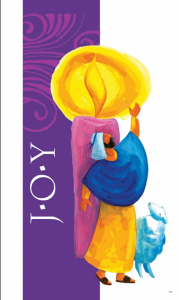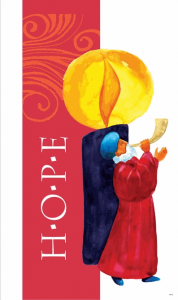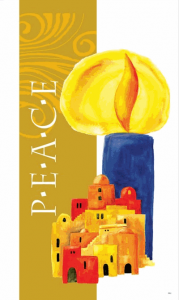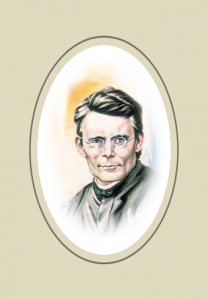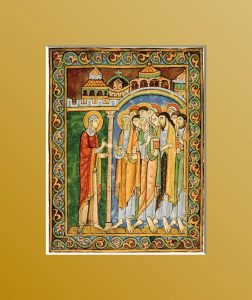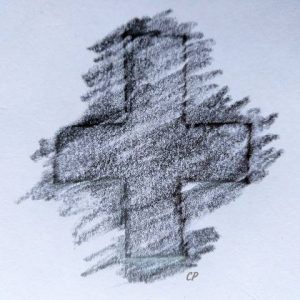 Ein Ausspruch des Heiligen Philipp Neri aus dem 16. Jhdt. macht Mut sich dem Aschermittwoch zu stellen. Dem Aschermittwoch stellen? Sicher, wenn man aus dem Fenster in die Straßen der Stadt oder des Dorfes schaut, vielleicht nur wenig. Es ist kein Unterschied zu anderen Tagen zu bemerken. Und doch ist dieser Tag einer der Wendepunkte des Jahreskreises.
Ein Ausspruch des Heiligen Philipp Neri aus dem 16. Jhdt. macht Mut sich dem Aschermittwoch zu stellen. Dem Aschermittwoch stellen? Sicher, wenn man aus dem Fenster in die Straßen der Stadt oder des Dorfes schaut, vielleicht nur wenig. Es ist kein Unterschied zu anderen Tagen zu bemerken. Und doch ist dieser Tag einer der Wendepunkte des Jahreskreises.
Heute wird ein Kreuz aus Asche auf meine Stirn gezeichnet. Es gibt viele Kreuze, doch dies ist ein im Kirchenjahr einmaliges Kreuz. Irgendwie nachdenklich stimmend, für manche gar bedrückend. „Von Staub kommst du – und zu Staub wirst du wieder werden“ – heißt es. Es gemahnt, dass Alles was wir um uns sehen und haben, nur geborgt ist, selbst unser eigener Körper. Und es gemahnt an die Vergänglichkeit und die Verantwortung, die wir mit uns tragen. Verantwortung gegenüber jenen, die nach uns kommen – und genau dies sollte uns andererseits wieder hoffnungsvoll machen. Wir dürfen etwas weitergeben, weiter schenken – darauf vertrauen, dass andere von unserem Tun etwas haben, das hoffentlich ihr Leben bereichert und ihnen hilft.
Deshalb haben die Worte des Philipp Neri eine Bedeutung an diesem Tag. Denn die Anderen könnten ja auch jene nach uns sein, denen wir den Boden bereiten und hinterlassen. Das muss nicht unbedingt etwas mit dem Tod zu tun haben, denn auch wenn wir noch am Leben sind, treten andere in unsere Fußstapfen. Auch hier gilt es, geordnete Verhältnisse und kein Chaos zu hinterlassen.
Und er sagt noch dazu: „- wenn du kannst.“ – Das soll jetzt nicht für eine mehr oder weniger gute oder schlechte Ausrede herhalten, um sich vor der Sache zu drücken. Nein vielmehr ist hier das jeweils eigene Vermögen oder Unvermögen zu berücksichtigen – die menschliche Komponente also. Ein jeder Mensch hat seine Stärken und Schwächen, der eine mehr, der andere weniger. Das Aschenkreuz gemahnt uns hier zurück, zur Einfachheit, zur Reduktion auf das Wesentliche.
Am Aschermittwoch ist noch nicht die Karwoche, aber auch nicht der normale Jahreskreis. Es ist der Beginn einer Zeit der Besinnung und der Einkehr, einer Zeit des bewussten Verzichts, die uns frei machen kann. Der Aschermittwoch ist wie ein Verkehrszeichen am Straßenrand, das unsere Aufmerksamkeit auf etwas Bevorstehendes einmahnt. Vielleicht eine Begegnung, auf die wir uns vorbereiten, gefasst machen, unsere Sinne dafür schärfen sollten.
Gott ist uns näher, als wir vielleicht glauben. Und eine Begegnung mit ihm ist etwas, das unsere ganze Aufmerksamkeit erfordert. Deshalb: „ Sei gut zu anderen – wenn du kannst!“
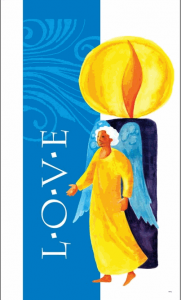 Weihnachten steht vor der Tür, das Fest der Liebe schlechthin – oder? „All you need is love“ – sagt ein wohlbekanntes Lied der Beatles vom Juli 1967, geschrieben von John Lennon. Wer keine Liebe erfährt oder wem sie über längere Zeit entzogen wurde, wird zum seelischen Krüppel, und nimmt körperlichen Schaden. Wir Menschen brauchen, ja wir leben von und für die Liebe.
Weihnachten steht vor der Tür, das Fest der Liebe schlechthin – oder? „All you need is love“ – sagt ein wohlbekanntes Lied der Beatles vom Juli 1967, geschrieben von John Lennon. Wer keine Liebe erfährt oder wem sie über längere Zeit entzogen wurde, wird zum seelischen Krüppel, und nimmt körperlichen Schaden. Wir Menschen brauchen, ja wir leben von und für die Liebe.






